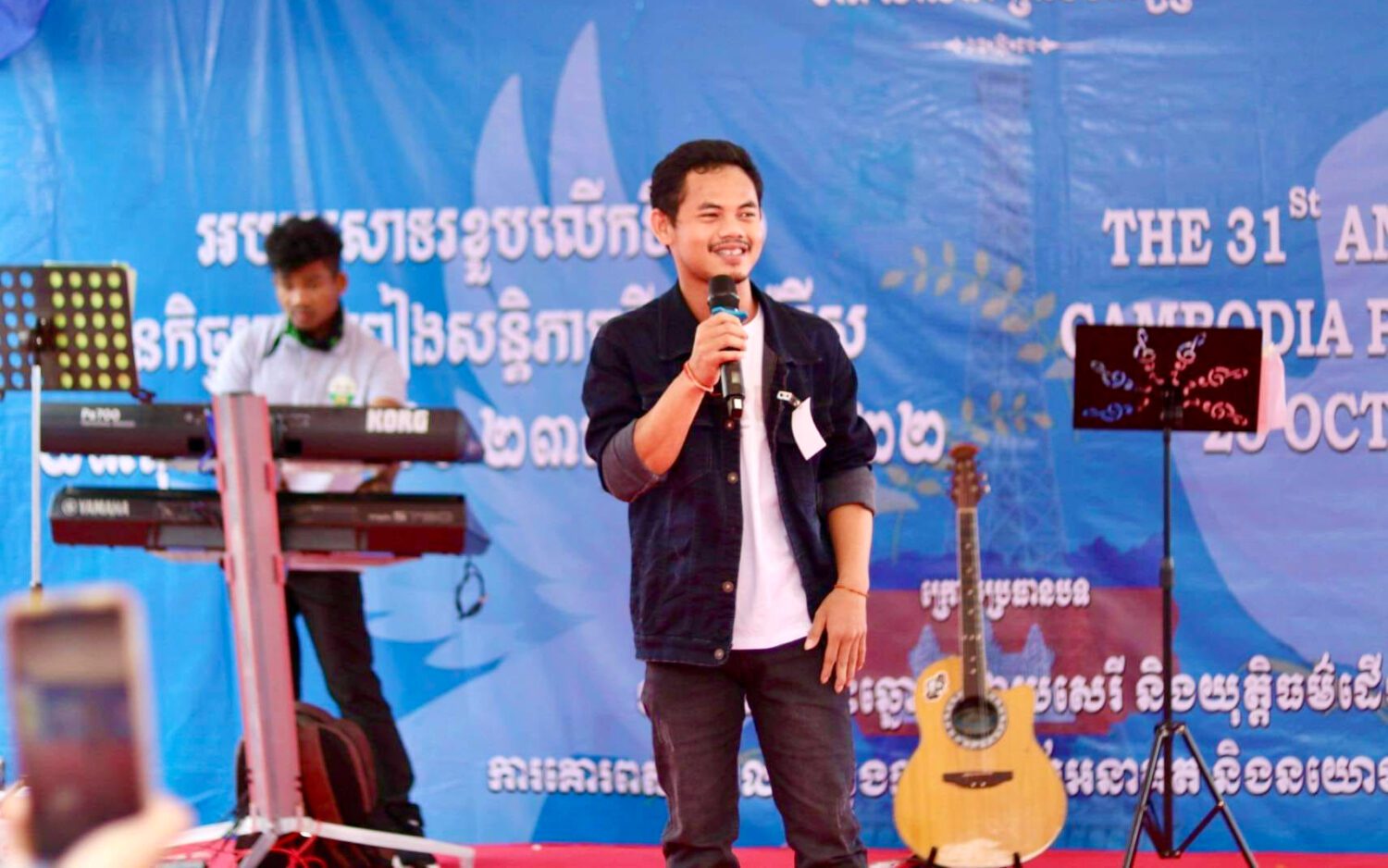UPDATED — Licadho and other civil society groups have removed a rap video that marked nine years since deadly violence at mass worker protests, saying the police had warned that if the NGO refused, authorities would take further legal action.
The video, “Workers Blood” by previously jailed Siem Reap rapper Kea Sokun, highlighted the lack of justice after mixed forces killed at least four civilians and injured 38 others when officers fired upon protesting workers on Phnom Penh’s Veng Sreng Blvd.
Police questioned Licadho spokesman Am Sam Ath over the video on Monday, after which the human rights group took it down from its website and Facebook page.
“The authorities said they would give us 24 hours to respond. If Licadho did not agree to remove it, they would continue its legal procedure,” Sam Ath said.
The group did not believe the video amounted to incitement as authorities alleged, but “we don’t want them to use this reason to take legal action against Licadho’s activities in the future,” he said.
The group wanted to focus on its work serving people rather than on a legal battle, he said.
He added that in the group’s three decades, this was the first time that it had seen police take legal action based on a Culture Ministry complaint about a work.
Culture Minister Phoeurng Sackona asked National Police in a letter dated Friday to take action to stop “Workers Blood” from circulating on social media.
Three other civil society groups are similarly under fire over the same video: labor rights NGO Central, informal workers union IDEA and farmers collective CCFC, which all also posted Sokun’s video. The rapper was jailed for a year in 2020 over a previous song saying he was “opposed to the dictator.”
Central program manager Khun Tharo said the labor group would wait until after its director Moeun Tola’s police questioning today to make a decision on also removing the video.
“Wait and see. After Moeun Tola’s return, we will discuss with the board what the Phnom Penh police’s demand or request is,” Tharo said.
IDEA president Vorn Pov was due to be questioned Tuesday afternoon and CCFC head Theng Savoeun on Wednesday.
Central’s video was removed as of 3:30 p.m., but the remaining two groups still had the rap video online at the time.
Tola said after leaving police questioning that authorities had asked him to take down the video, and he would comply. Pov said after his afternoon questioning that “we are forced to do it because some of our friends who maybe suffered through the questions like me have forced themselves to remove this video too.”
“We live in a society like this, and it is like this,” Pov said. “We have never had the peace to express our views.” The rap video was removed from IDEA’s page by 5:30 p.m.
Interior Ministry spokesman Khieu Sopheak said the legal action was the result of poor relations between Licadho and the government.
“Very briefly, it’s because the cooperation between Licadho and the government is not yet an honest cooperation — if the cooperation were honest, it would not be like this. Based on this dishonesty, it has turned out to be such an action,” Sopheak said.
Culture Ministry spokesman Long Bunna Sireyvath said the video had crossed a line.
“If it is within a blue or green line, the ministry will summon them for education, but it is beyond this line,” Bunna Sireyvath said. The decision into whether it amounted to incitement was then beyond the ministry’s hands, he said.
Sokun could not be reached on Tuesday.
Adhoc spokesman Soeng Senkaruna said it was understandable that Licadho did not want to waste their time on legal pressure, but it was nevertheless a thorny decision to remove the video.
Licadho has said itself that the video “is protected speech under the Cambodian Constitution.”
Senkaruna said some people could wonder why, if Licadho did no wrong, it would agree to remove the video.
“In this case, it is not wrong. It just wanted to highlight the event that truly happened to demand justice and end impunity for killings and violence,” he said.
Vann Bunna, a research fellow at the Cambodian Institute for Cooperation and Peace, added that it was hard to call the video misleading when it was based on footage of real events.
“It shows the government’s intention to limit rights and freedoms in society,” Bunna said. “As the 2023 election approaches, the ruling party does not want to see any impact on its image and popularity.”
Additional reporting by Nhim Sokhorn and Kuoy Langdy
Updated at 5:45 p.m. with comments from Moeun Tola and Vorn Pov after their questioning.













